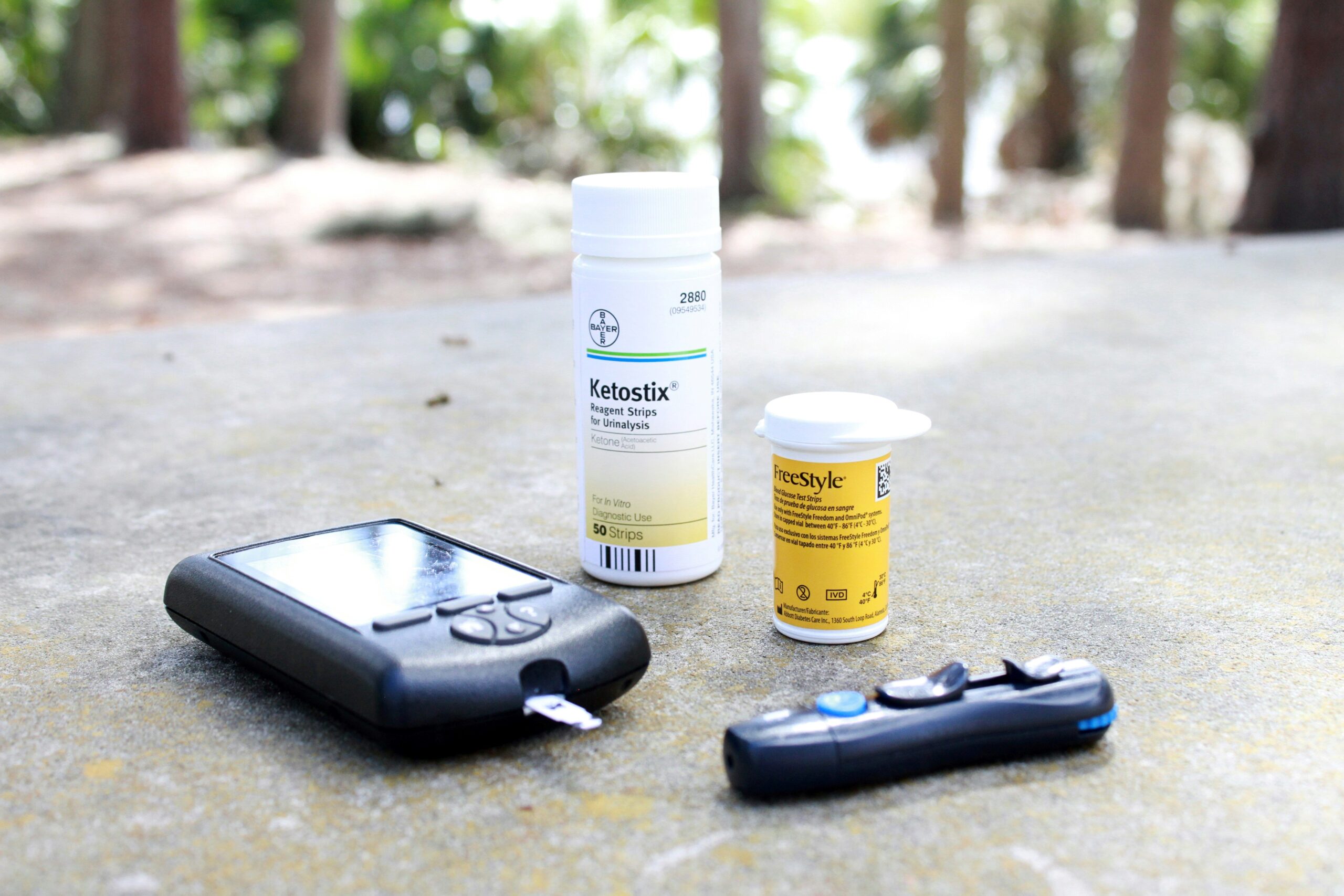
The drive home from the hospital was quiet, except for the soft patter of rain on the windshield. Tola glanced over at her mother, who sat silently in the passenger seat, her hands folded gently on her lap. The diagnosis of diabetes hung between them, heavy and unfamiliar. Tola’s mind raced with worry; what would this mean for her mother’s health? How could she manage to care for her now, with the medications, the strict diet, and her hectic schedule?
Her mother had a sweet tooth. She used to bake sugary chin chin and puff-puff for every family gathering, and there was always a jar of candy by her bed. The thought of her mother having to give up the things she enjoyed so much broke Tola’s heart. Could she change her habits after all these years?
Tola’s worry deepened. What if diabetes ran in the family? Could she be next? The idea of inheriting this illness terrified her, and she knew she had to be more mindful of her health—no more grabbing sugary snacks on the go or skipping workouts.
But then, she saw her mother’s soft smile, a calm acceptance in her eyes. This was the woman who had raised her, strong and resilient. They would face this together, just like they always had. Tola felt a quiet resolve settle in her chest. She’d be more conscious of her sugar intake, more vigilant about her health, and, most importantly, be there for her mother.
As they pulled into the driveway, Tola took a deep breath. The road ahead would be challenging, but they would face it with love and determination.
Though not ideal, it is common for older adults aged 65 and older to have diabetes. Added to the other effects of ageing, the effects of diabetes on an older adult can be challenging, but in the end, it comes down to intentional management. In this blog, we will explore what diabetes is, its effect on seniors and how to manage it.
What is Diabetes?
Diabetes occurs when blood sugar levels are too high. This happens when the body produces little or no insulin, the hormone that helps turn glucose into energy. While diabetes affects people of all ages, it can be more challenging for seniors, especially those with other health issues. Managing diabetes requires a personalised plan that considers both ageing and overall health.
Types of Diabetes
There are various types of diabetes, but these are the most common types:
- Type 1 Diabetes:
This type is an autoimmune disease. In this condition, the immune system attacks and destroys the cells in the pancreas that produce insulin. As a result, the body finds it hard to make insulin or doesn’t make it at all. This kind of diabetes is common among children or younger adults; however, it can still be seen in other age groups.
- Type 2 Diabetes:
Type 2 diabetes occurs when the body becomes resistant to insulin or doesn’t produce enough insulin to keep up with glucose intake. It is the most common type of diabetes, mostly seen in adults. Type 2 diabetes can be caused by obesity or hereditary factors.
- Prediabetes:
This isn’t precisely diabetes, but it is a condition where your blood sugar is too high but not high enough to be considered diabetes. Prediabetes most times can lead to type 2 diabetes, but that can be prevented through an improved diet, exercise, maintaining a healthy weight and medication.
What is the Effect of Diabetes on Seniors?
Diabetes can cause severe health conditions in seniors, mainly if it is poorly managed. It can damage the kidneys, eyes, nerves, heart, and feet. It may also increase the risk of cognitive decline, including dementia and Alzheimer’s. That’s why it’s essential to stay on top of diabetes management.
How to Manage Diabetes as a Senior
- Eat a Healthy Diet: Focus on balanced meals that help control blood sugar. As a diabetic, you should avoid sugary and starchy food like sweets and white bread. Consume more proteinous meals, fruits, wholegrains, and vegetables.
- Maintain a Fit Lifestyle: Try to be as active as possible. Physical activities like walking or stretching can help manage weight and improve blood sugar levels.
- Regular Checkups: Diabetes can affect your eyes, kidneys, and other body parts. It’s important to have regular physical checkups to detect problems early before they become serious.
- Monitor Blood Sugar: You should track your blood sugar level regularly, especially if you are taking insulin to manage your diabetes. Very high or very low blood sugar levels are dangerous for your health. Your doctor can advise you on how often you should monitor your blood sugar levels.
- Take Medication: Take the medication as your doctor prescribes for a better quality of life. As you age, remembering things becomes difficult, so set reminders or have your caregiver handle your medication schedule.
- Pay Attention to Your Mental Health: As earlier mentioned, diabetes can lead to cognitive decline in seniors; toppled with the challenges of managing the condition, it may increase the risk of dementia and depression. Regular mental health screenings can help detect these issues early, allowing faster and more effective treatment.
- Take Extra Care of Your Feet: Diabetes affects circulation and nerve health in the feet, increasing the risk of ulcers, infections, and other complications. Keep your feet clean and moisturised, and watch for any cuts, swelling, redness, or blisters. If they are not healing correctly or quickly, see your doctor.
- Limit Alcohol: Alcohol can affect your blood sugar levels, so drink responsibly, preferably having only a glass a day and accompanying it with food. Also, check your glucose level before bed whenever you take alcohol.
- Take Your Dental Health Seriously: Diabetes may expose you to serious gum infections, so brush and floss daily to maintain healthy teeth and gums.
Conclusion
Managing diabetes as a senior, like Tola’s mother, may require lifestyle changes. But with proper care, you can live a long and healthy life. Paying attention to your sugar levels, taking your medications, eating right and keeping your body active will make a big difference.
Disclaimer: This blog is for informational purposes only and not a substitute for professional medical advice. Always consult your healthcare provider for personalised recommendations based on your health needs.
For expert advice and compassionate care, @Ìtọ́jú is here to support you. Reach out to us today.



